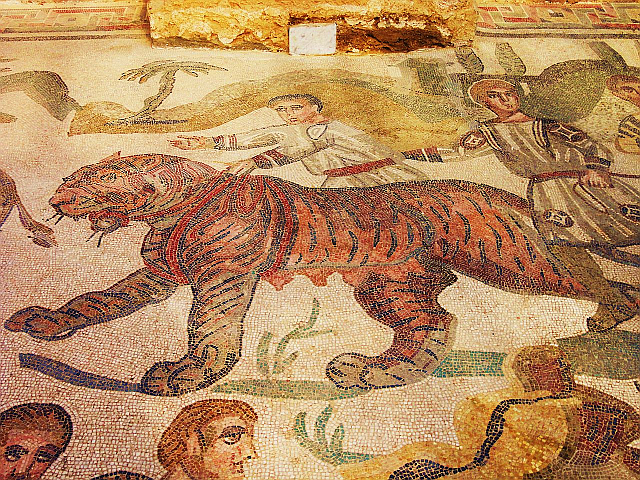As we've noted, the invocations in Dante's Commedia progress. The invocation of Purgatorio 1 goes into greater detail in addressing the Muse than we saw in the first canto of the Inferno.
Dante's choice of theme -- the rise, or renaissance, or resurrection of poetry -- and specific figural language -- the mythic contest of the Muses with the Pierides -- sets up a complex constellation of relationships involving love, death, rebirth, and the nature and quality of poetic inspiration.
A few notes about the scene in Ovid to which Dante points us are below, and they are far from comprehensive -- there's much more to think about with regard to Ovid's tale, and Calliope's tale within the tale, which makes for a rich poetic relationship between Dante's launch of the Purgatorio and his source. The whole of Metamorphoses 5 is suggestive in this regard.
The setting of the contest is, as always in Ovid, complex. Athena is visiting Helicon; she encounters the Muses and, suddenly, hears magpies. The Muses explain how they were challenged by the daughters of Pierus. Athena asks them to relate the whole story:
Dante's choice of theme -- the rise, or renaissance, or resurrection of poetry -- and specific figural language -- the mythic contest of the Muses with the Pierides -- sets up a complex constellation of relationships involving love, death, rebirth, and the nature and quality of poetic inspiration.
A few notes about the scene in Ovid to which Dante points us are below, and they are far from comprehensive -- there's much more to think about with regard to Ovid's tale, and Calliope's tale within the tale, which makes for a rich poetic relationship between Dante's launch of the Purgatorio and his source. The whole of Metamorphoses 5 is suggestive in this regard.
Ma qui la morta poesì resurga,
o sante Muse, poi che vostro sono;
e qui Calïopè alquanto surga,
seguitando il mio canto con quel suono
di cui le Piche misere sentiro
lo colpo tal, che disperar perdono.
But let dead Poesy here rise again,
O holy Muses, since that I am yours,
And here Calliope somewhat ascend,
My song accompanying with that sound,
Of which the miserable magpies felt
The blow so great, that they despaired of pardon.
The setting of the contest is, as always in Ovid, complex. Athena is visiting Helicon; she encounters the Muses and, suddenly, hears magpies. The Muses explain how they were challenged by the daughters of Pierus. Athena asks them to relate the whole story:
After the daughters of Pierus sing their song, Calliope takes up the challenge, and sings a long tale that is primarily but not entirely about the rape of Proserpina and Ceres' search for her. When she finishes, the nymphs who are judging award the prize to the Muses, who are immediately mocked by Pierus's daughters. The contest ends with the Pierides metamorphosing into magpies:
The Muse was speaking: wings sounded in the air, and voices in greeting came out of the high branches. The daughter of Jupiter looked up, and questioned where the sound came from, that was so much like mouths speaking, and thought it human, though it was birdsong.
Nine of them, magpies, that imitate everything, had settled in the branches, bemoaning their fate. While she wondered, the other began speaking, goddess to goddess, ‘Defeated in a contest, they have been added only recently to the flocks of birds.
Pierus of Pella, rich in fields, was their father, and Paeonian Euippe was their mother. Nine times, while giving birth, she called, nine times, to powerful Lucina. Swollen with pride in their numbers, this crowd of foolish sisters came here, to us, through the many cities of Achaia and Haemonia, and challenged us to a singing competition, saying “Stop cheating the untutored masses with your empty sweetness. If you have faith in yourselves, contend with us, you goddesses of Thespiae. We cannot be outdone in voice or art, and we are your equals in numbers."
as they tried to speak, and, attack us with insolent hands, making a great clamour, they saw feathers spring from under their nails, and plumage cover their arms. Each one saw the next one’s mouth harden to a solid beak, and a new bird enter the trees. When they wanted to beat their breasts in sorrow, they hung in the air, lifted by the movement of their arms, magpies now, the slanderers of the woods. Even now, as birds, their former eloquence remains, their raucous garrulity, and their monstrous capacity for chatter.’Well worth pondering why, at the beginning of his second Canticle, Dante invokes this Ovidian context.






